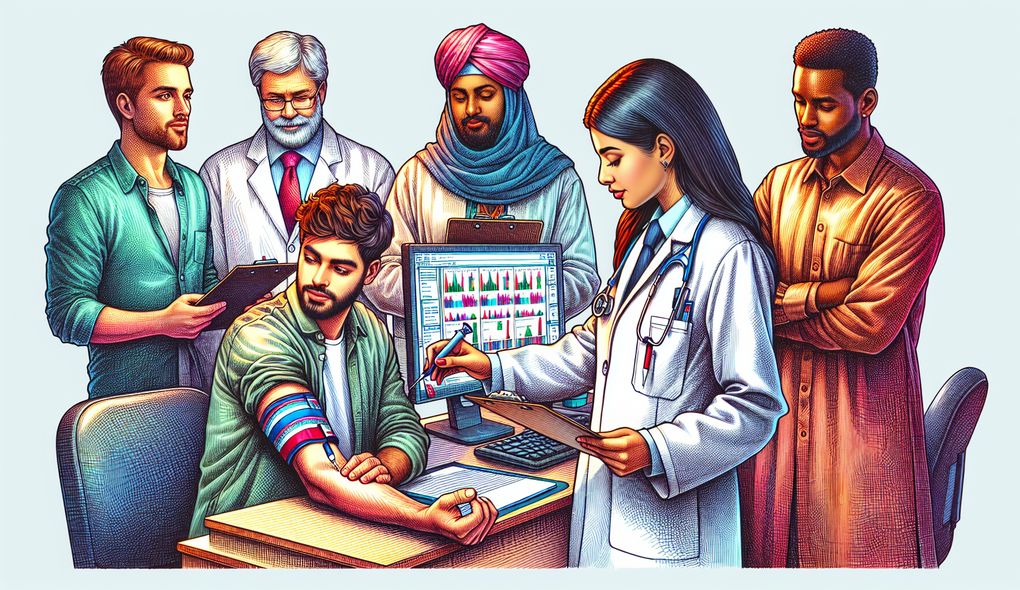What strategies do you use to engage effectively with clinical staff, patients, and other stakeholders in a clinical trial?
INTERMEDIATE LEVEL

Sample answer to the question:
To engage effectively with clinical staff, patients, and other stakeholders in a clinical trial, I use a combination of communication and interpersonal skills, along with a patient-centered approach. I make an effort to establish rapport and build trust with clinical staff by actively listening to their concerns and addressing any questions or issues they may have. I also prioritize open and transparent communication with patients, ensuring they understand the purpose and process of the clinical trial. Additionally, I collaborate closely with other stakeholders, such as sponsors and ethics committees, to ensure smooth coordination and adherence to protocols. Overall, my strategy is to create a supportive and collaborative environment that promotes engagement and participation.
Here is a more solid answer:
In my previous role as a clinical trial coordinator, I employed several strategies to effectively engage with clinical staff, patients, and stakeholders. Firstly, I organized regular meetings and training sessions with clinical staff to ensure everyone was well-informed about the trial objectives and protocols. This facilitated open communication and addressed any questions or concerns. Secondly, I adopted a patient-centered approach by providing detailed information to participants, ensuring their understanding of the trial process and potential risks. I also established a support system, including regular check-ins and educational resources, to enhance patient engagement. Lastly, I maintained strong relationships with ethics committees and sponsors, collaborating closely to navigate regulatory requirements. Overall, these strategies helped establish a culture of collaboration and engagement among all stakeholders.
Why is this a more solid answer?
The solid answer provides specific examples from the candidate's past experience as a clinical trial coordinator. It highlights the strategies used to engage with clinical staff, patients, and stakeholders, including regular meetings, training sessions, a patient-centered approach, and collaboration with ethics committees and sponsors. The answer demonstrates the candidate's ability to effectively communicate, build relationships, and navigate regulatory requirements. However, it could be improved by providing more details about the outcomes or results achieved through these strategies.
An example of a exceptional answer:
In my role as a clinical trial coordinator, I utilized a multifaceted approach to engage effectively with clinical staff, patients, and stakeholders. To foster collaboration with clinical staff, I implemented a robust communication system, including regular face-to-face meetings, virtual workshops, and an online platform for sharing updates and resources. This facilitated real-time discussions, encouraged knowledge exchange, and addressed any concerns or challenges promptly. Additionally, I developed tailored educational materials for patients, ensuring they had comprehensive information about the trial process and their rights. As a result, patient participation and compliance significantly improved. Furthermore, I proactively sought feedback from all stakeholders and implemented continuous improvements based on their input. For instance, I initiated a monthly newsletter to keep clinical staff and sponsors updated on trial progress, milestones, and any changes in protocol. By leveraging a combination of communication, patient-centeredness, and proactive stakeholder engagement, I was able to create a collaborative and supportive environment that enhanced the success of the clinical trials I coordinated.
Why is this an exceptional answer?
The exceptional answer provides specific and comprehensive details about the candidate's strategies and approaches to engage effectively with clinical staff, patients, and stakeholders. The answer includes the use of various communication channels, the development of tailored educational materials, and the implementation of a feedback system to continuously improve the trial process. These strategies demonstrate the candidate's proactive and innovative approach to stakeholder engagement and highlight their ability to drive positive outcomes. The answer also emphasizes the successful results achieved, such as improved patient participation and compliance. Overall, it showcases the candidate's expertise in building collaborative relationships and creating a supportive environment in clinical trials.
How to prepare for this question:
- Research the specific clinical trial management software and electronic data capture systems used in the organization to familiarize yourself with their functionalities.
- Gain a solid understanding of medical terminology and study protocols to effectively communicate with clinical staff and address any questions.
- Practice active listening and empathy to develop strong rapport with patients, as they are key stakeholders in clinical trials.
- Stay updated on relevant regulatory guidelines, such as Good Clinical Practice (GCP), to ensure compliance throughout the trial process.
- Reflect on past experiences where you successfully engaged with clinical staff, patients, or stakeholders and prepare specific examples to showcase your skills during the interview.
What are interviewers evaluating with this question?
- Communication
- Interpersonal Skills
- Patient-centered Approach

